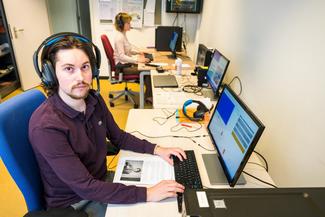- ImpactWe help parliaments to become greener and to implement the Paris agreement.We support democracy by strengthening parliamentsWe work to increase women’s representation in parliament and empower women MPs.We defend the human rights of parliamentarians and help them uphold the rights of all.We help parliaments fight terrorism, cyber warfare and the proliferation of weapons of mass destruction.We encourage youth participation in parliaments and empower young MPs.We support parliaments in implementing the SDGs with a particular focus on health and climate change.
- ParliamentsNearly every country in the world has some form of parliament. Parliamentary systems fall into two categories: bicameral and unicameral. Out of 190 national parliaments in the world, 78 are bicameral (156 chambers) and 112 are unicameral, making a total of 268 chambers of parliament with some 44,000 members of parliament. IPU membership is made up of 180 national parliaments
Find a national parliament
We help strengthen parliaments to make them more representative and effective.. - EventsVirtual eventThe International Court of Justice (ICJ) was constituted under the United Nations Charter to help nations settle disputes peacefully in accordance with international law.
- Knowledge
Discover the IPU's resources
Our library of essential resources for parliamentsGlobal data for and about national parliamentsLatest data and reports about women in parliamentResolutions, declarations and outcomes adopted by IPU MembersRecent innovations in the way parliaments workThe latest climate change legislation from the London School of Economics' database
Dutch House of Representatives shares its experience of automatic speech recognition (ASR)

Parliamentary reporters at work (© House of Representatives, The Netherlands)
Since the virtual World e-Parliament Conference in June 2021, several parliaments have expressed an interest to learn more about innovations in other parliaments. And so, on 30 September 2021, the IPU Centre for Innovation in Parliament (CIP) held a knowledge exchange event with the Netherlands’ House of Representatives to discuss technologies for automatic speech recognition (ASR).
Mr Deru Schelhaas, Deputy Editor of the Dutch Parliamentary Reporting Office (PRO), showcased their ASR project, sharing results and lessons learned. The meeting was well-attended, including by staff from Hansard and parliamentary reporting offices, as well as parliamentary IT professionals. The 48 participants came from 44 parliaments or chambers in the Pacific, Asia, Middle East, Africa, Europe, North America and Latin America.
THE DUTCH EXPERIENCE
PRO started to look at speech-to-text solutions in 2016, with experiments that included live subtitling using Dragon software. Since 2017, they have been looking at ways to incorporate ASR into their work, working on the pilot project with Radboud University, Nijmegen.
The pilot automatically translates speech into text, a process that is followed by manual grammar and style editing. A key challenge was the amount of data, which included about 3,000 hours of MP3 debate recordings and XML-format reports.
The initial conclusion is that ASR can help, but is better in specific circumstances. Debate speeches are much easier to translate into text, for example. Meanwhile, the ASR-supported process is only marginally faster. It has also been difficult to embed the ASR programme into existing workflows, because mistakes still needed manual corrections. The next step is to look at solutions that could be developed by local universities, and to see what is available on the local market.
In five years, Mr Schelhaas expects ASR will be playing a larger role in parliamentary reporting, since the underlying business case is good. He thinks that ‘A quality’ reporting will be mostly done by humans, and ‘B quality’ would use ASR.




